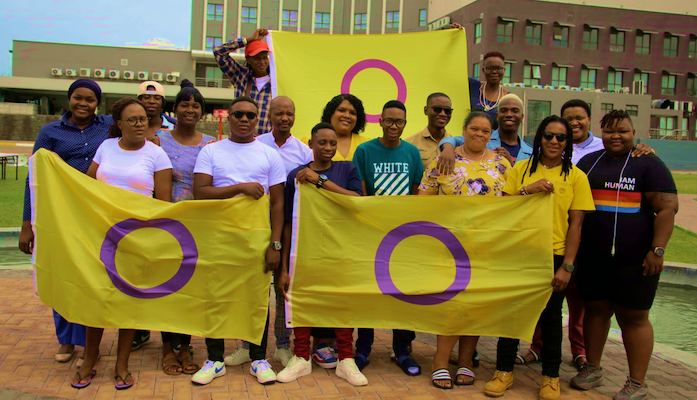by Staff Reporter
Intersex activists from Botswana, Malawi, South Africa, Tanzania, Zambia and Zimbabwe have founded a new collective, the Southern African Intersex Forum (SAIF).
The SAIF aims to support the Southern African organisations which raise awareness on intersex issues and advocate for the protection of the rights of intersex people.
SAIF’s member organisations will launch joint intersex advocacy campaigns to make the public aware of the issues facing intersex people across Southern Africa.
“Stigma, discrimination, medical violence, and exclusion of intersex people is prevalent in the region. The legal and policy environment is not enabling for the promotion and protection of the rights of intersex people who have limited access to justice and redress when faced with human rights violations” says a spokesperson from Iranti, a member organisation of SAIF.
Iranti is a Johannesburg-based media-advocacy organisation which advocates for the rights of LGBTI+ persons, with specific focus on lesbian, transgender (including gender non-conforming) and intersex persons in Africa.
SAIF has called on all governments in Southern Africa to ban surgical, hormonal and sterilisation interventions that alter the sex characteristics of intersex people without their consent.
Healthcare providers who violate the rights of intersex people and conduct medical interventions (that are not a medical emergency) without informed consent from the patient, must be punished.
When intersex babies are born, parents must be provided with information that affirms their baby’s intersexuality, instead of representing this as a problem that needs to be altered by surgery, says SAIF.
SAIF also wants all governments in the region to train healthcare providers in the health needs and human rights of intersex persons, and to ban all discrimination against intersex people by education, health care, employment, and public services providers.
The governments must also “ensure that intersex people have the right to information and are able to access their medical records” the Iranti spokesperson said.


